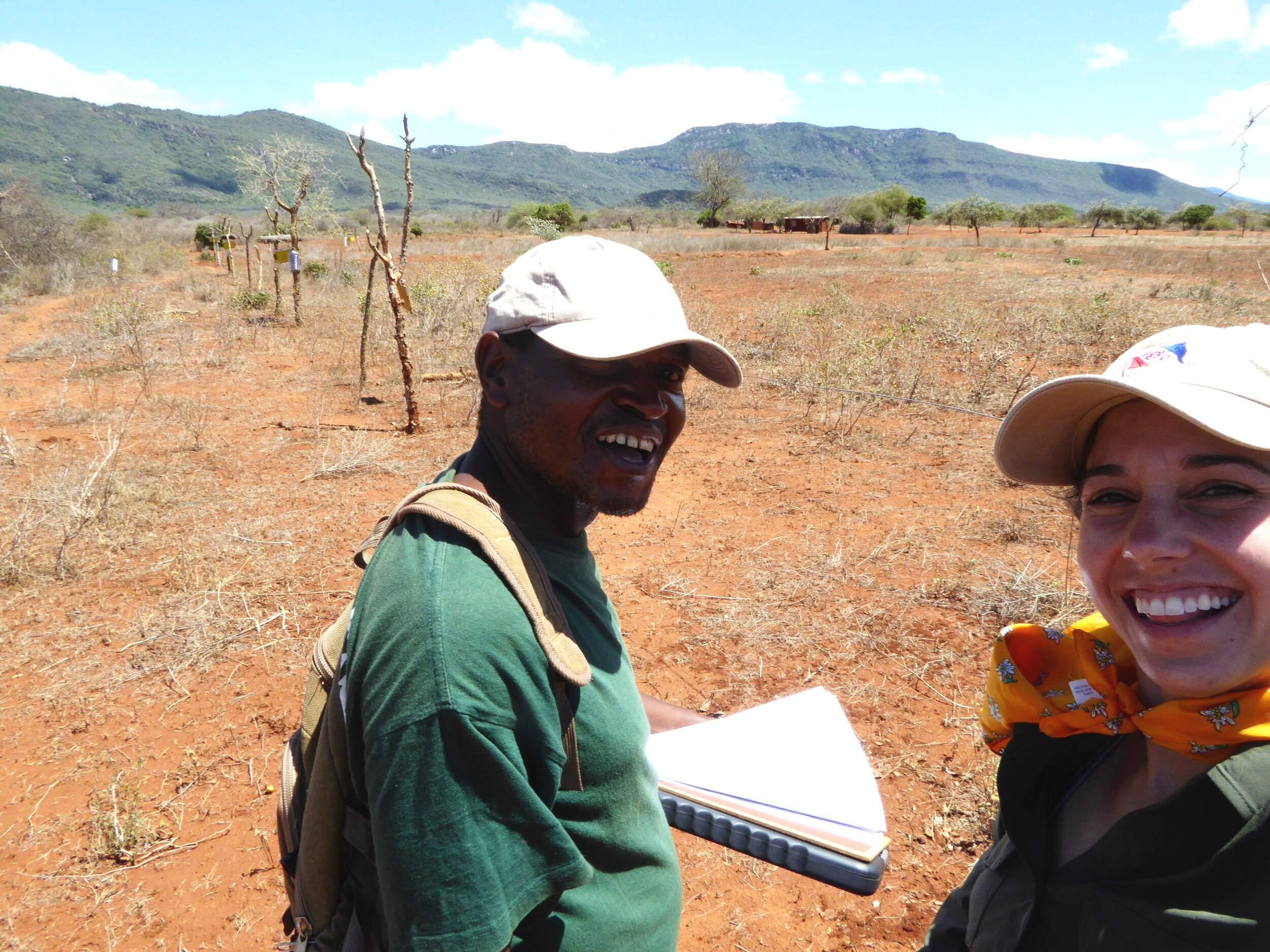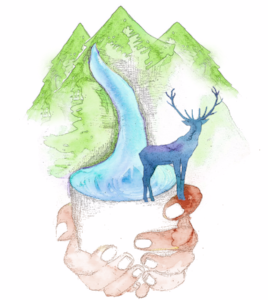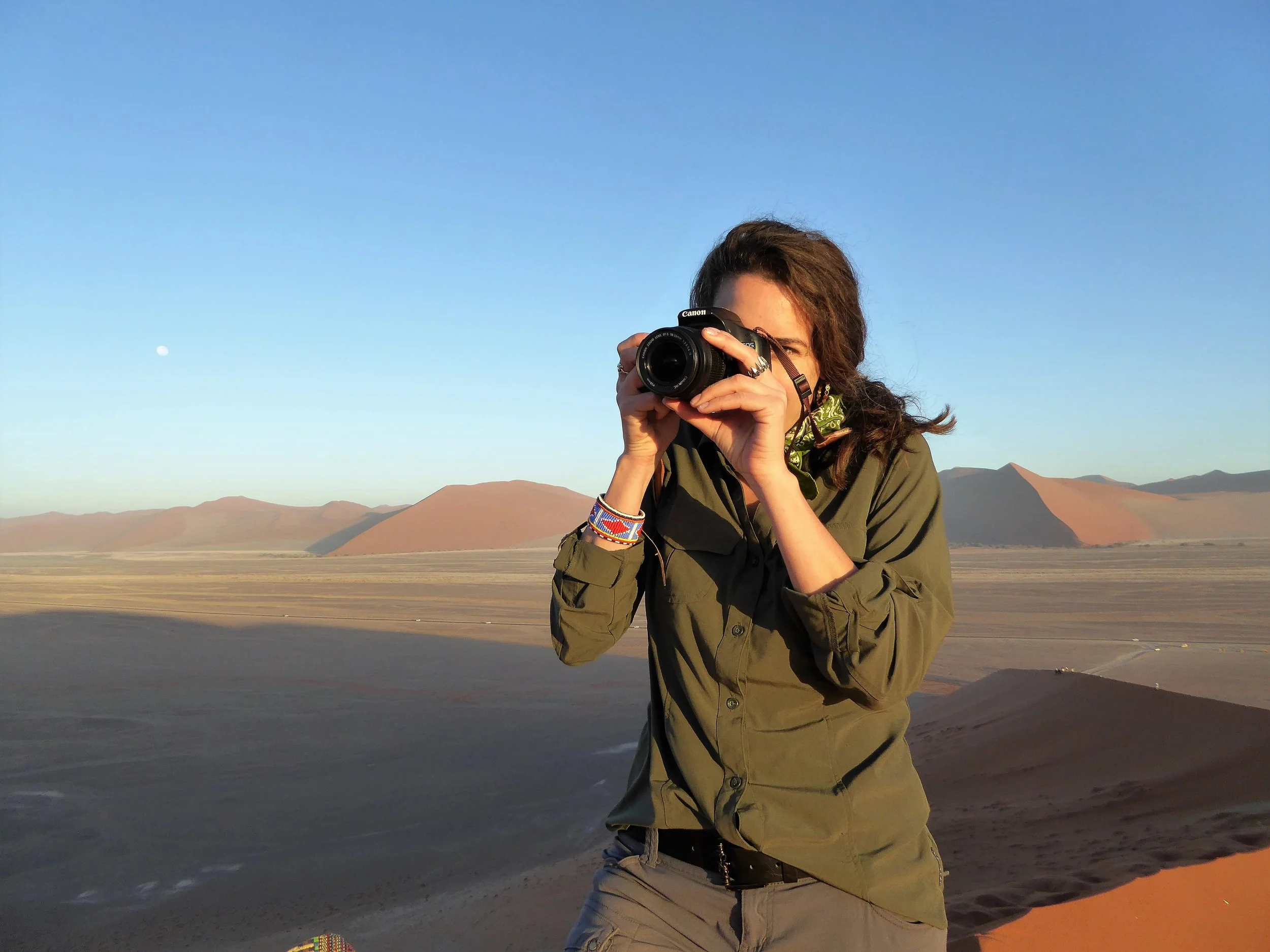
Conservation, Social Science, Collaboration
Jackie has over nine years of experience in applied social science and project leadership in conservation and natural resource, protected area management. Her research focuses on the relationships between humans, wildlife, and their environments, utilizing interdisciplinary and participatory methods. With a solid foundation in the human dimensions of wildlife, conservation science, and social psychology, she builds evidence to inform planning and management efforts.
Jackie is dedicated to leading conservation and development initiatives, focusing on innovative strategies that align human well-being with biodiversity goals. She collaborates with a wide range of stakeholders - including academic institutions, NGOs, governmental agencies, Indigenous peoples, and local communities - to drive impactful conservation outcomes.
Increasingly, Jackie is interested in exploring the influence of global policies on national and community-level processes in the contexts of protected areas and ‘other effective area-based conservation measures’ (OECMs). She also aims to continue incorporating diverse forms of communication into her projects, such as collaborating with filmmakers and visual artists, to share cultural values and the human stories behind conservation efforts.
uncovering Social-political factors affecting Protected Areas
As a U.S. Fulbright grantee (2022-2023), Jackie led an ethnographic research project in collaboration with Dr. Jim Ayorekire (at Makerere University), Dr. Ian Munanura (at Oregon State University), and the Uganda Wildlife Authority. The project uncovered sociopolitical factors affecting wildlife conservation and community-park relations in Queen Elizabeth National Park, Uganda. Outcomes include:
Use of interviews, participatory mapping, and participant observations to explore the dynamics between park rangers and Indigenous fishing villages living inside the protected area and farming villages neighboring the park.
Evidence supporting adaptive strategies to mitigate human-wildlife conflicts and strengthen collaboration with local communities.
Integration of local community perspectives and reinforcement of cultural values, supporting more inclusive protected area management.
Understanding visitors and their experiences on wildlife refuges
As a research associate, Jackie worked with Dr. Alia Dietsch (at Ohio State University) in managing the ongoing National Visitor Survey, a project that provides new information about visitors and their experiences on National Wildlife Refuges across the United States. Outcomes include:
Collaboration with the Human Dimensions Branch of the U.S. Fish and Wildlife Service to inform Comprehensive Conservation Plans, visitor services, transportation planning, and public lands policy.
Evidence to guide site-specific management decisions and planning processes from local field stations to a national scale of the National Wildlife Refuge System.
Co-authored peer-reviewed publication on the application of vulnerability frameworks in public lands management, analyzing visitors’ sensitivities and adaptive capacities using large-scale datasets.
Exploring the co-location of Mapped Landscape values and activities
Jackie collaborated with Dr. Lee Cerveny (at U.S. Forest Service) and Dr. Kelly Biedenweg (at Oregon State University) to explore mapped landscape values and activities across three national forests in the Western U.S. This project was a component of a larger body of Human Ecology Mapping work led by Dr. Cerveny, informing planning and decision-making on public lands. Short-term outcomes of our work include:
Enhanced understanding of how visitors and communities value and interact with these protected areas.
Improved tools for incorporating visitors’ landscape values and behaviors into land management plans.
Contributed to the broader scholarly literature on sense of place and place attachment, enhancing theoretical and practical insights.
advancing conservation efforts for the endangered reticulated giraffe
For four years, Jackie collaborated with Dr. Ali Abdullahi on the Somali Giraffe Project to integrate human dimensions into conservation actions for the endangered reticulated giraffe (Giraffa camelopardalis ssp. reticulata) in northeastern Kenya. Initiated in 2018 by Dr. Abdullahi, this community-based project contributes to the larger National Recovery and Action Plan for Giraffes led by the Kenya Wildlife Service. Short-term outcomes of our work include:
Comprehensive science-based approaches embedded in the Somali Giraffe Conservation Project Proposal.
Development of research projects exploring the relationships between cultural values, beliefs, and human behaviors associated with the reticulated giraffe, specifically around human-giraffe conflict and illegal poaching.
Contributions to community-based conservation strategies informed by indigenous communities and cultural insights.
Examining Sense of Place for marine conservation planning
With a team of researchers from the U.S. and Panama, Jackie co-developed and conducted a field-based project that explored coastal communities’ sense of place in Bocas del Toro, Panama. Outcomes include:
Use of text analysis, cognitive mapping 3CM, and a facilitated participatory mapping workshop to understand coastal communities' and marine resource organizations' perceptions of place.
Co-authored a report and a peer-reviewed paper stemming from fieldwork, communicating new insights that informed marine conservation planning for the Bocas del Torro community and the Panamanian government.
Informing adaptive management on Malheur Wildlife Refuge
Collaborating with Dr. Kelly Biedenweg (at Oregon State University), Dr. Jason Dunham (at U.S. Geological Survey), and the U.S. Fish and Wildlife - Malheur Wildlife Refuge, Jackie implemented a project to assess stakeholder values and perceptions of Malheur Lake and its management, initiating the integration of social science in the adaptive management of Malheur Lake. Outcomes include:
Conducted interviews and attended workshops with stakeholders and local community members, including ranchers, business owners, High Desert Partnership, Ducks Unlimited, and more.
Qualitative evidence of diverse identities and varying value orientations for stakeholders related to Malheur Lake management.
Co-authored a report for the U.S. Fish and Wildlife, informing long-term adaptive management strategies of Malheur Lake.
measuring and modeling Tolerance for black bears
As a Master’s student at Oregon State University in the Human Dimensions Lab, Jackie researched tolerance for wildlife and its psychological predictors in the context of human-black bear interactions in Oregon. It incorporated the overlapping phenomena of human cognition, sociocultural norms, spatial land use, and native wildlife to inform future black bear management in Oregon. Outcomes include:
Use of intercept surveys, landscape values mapping, and spatial analysis on documented black bear encounters (from ODFW’s black bear mortality point data).
Categorized the cognitive antecedents of tolerance for black bears using a psychometric scale development process.
Understanding of social-psychological variables associated with tolerance for black bears.
To read her publications visit ReasearchGate
Journey into Human Dimensions Field Research: Watch Jackie’s field journal uncovering human-black bear connections in Oregon.
Explore the Cognitive Hierarchy: Delve into this framework in the context of human-wildlife relations with this insightful video.
Creative design & voice-over by Jackie; Animation by Arigato Studio











